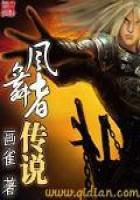The privilege of the clergy in those ancient times (which to us who live in the present times appear the most absurd), their total exemption from the secular jurisdiction, for example, or what in England was called the benefit of the clergy, were the natural or rather the necessary consequences of this state of things.How dangerous must it have been for the sovereign to attempt to punish a clergyman for any crime whatever, if his own order were disposed to protect him, and to represent either the proof as insufficient for convicting so holy a man, or the punishment as too severe to be inflicted upon one whose person had been rendered sacred by religion? The sovereign could, in such circumstances, do no better than leave him to be tried by the ecclesiastical courts, who, for the honour of their own order, were interested to restrain, as much as possible, every member of it from committing enormous crimes, or even from giving occasion to such gross scandal as might disgust the minds of the people.
In the state in which things were through the greater part of Europe during the tenth, eleventh, twelfth, and thirteenth centuries, and for some time both before and after that period, the constitution of the Church of Rome may be considered as the most formidable combination that ever was formed against the authority and security of civil government, as well as against the liberty, reason, and happiness of mankind, which can flourish only where civil government is able to protect them.In that constitution the grossest delusions of superstition were supported in such a manner by the private interests of so great a number of people as put them out of all danger from any assault of human reason: because though human reason might perhaps have been able to unveil, even to the eyes of the common people, some of the delusions of superstition, it could never have dissolved the ties of private interest.Had this constitution been attacked by no other enemies but the feeble efforts of human reason, it must have endured for ever.But that immense and well-built fabric, which all the wisdom and virtue of man could never have shaken, much less have overturned, was by the natural course of things, first weakened, and afterwards in part destroyed, and is now likely, in the course of a few centuries more, perhaps, to crumble into ruins altogether.
The gradual improvements of arts, manufactures, and commerce, the same causes which destroyed the power of the great barons, destroyed in the same manner, through the greater part of Europe, the whole temporal power of the clergy.In the produce of arts, manufactures, and commerce, the clergy, like the great barons, found something for which they could exchange their rude produce, and thereby discovered the means of spending their whole revenues upon their own persons, without giving any considerable share of them to other people.Their charity became gradually less extensive, their hospitality less liberal or less profuse.
Their retainers became consequently less numerous, and by degrees dwindled away altogether.The clergy too, like the great barons, wished to get a better rent from their landed estates, in order to spend it, in the same manner, upon the gratification of their own private vanity and folly.But this increase of rent could be got only by granting leases to their tenants, who thereby became in a great measure independent of them.The ties of interest which bound the inferior ranks of people to the clergy were in this manner gradually broken and dissolved.They were even broken and dissolved sooner than those which bound the same ranks of people to the great barons: because the benefices of the church being, the greater part of them, much smaller than the estates of the great barons, the possessor of each benefice was much sooner able to spend the whole of its revenue upon his own person.
During the greater part of the fourteenth and fifteenth centuries the power of the great barons was, through the greater part of Europe, in full vigour.But the temporal power of the clergy, the absolute command which they had once had over the great body of the people, was very much decayed.The power of the church was by that time very nearly reduced through the greater part of Europe to what arose from her spiritual authority; and even that spiritual authority was much weakened when it ceased to be supported by the charity and hospitality of the clergy.The inferior ranks of people no longer looked upon that order, as they had done before, as the comforters of their distress, and the relievers of their indigence.On the contrary, they were provoked and disgusted by the vanity, luxury, and expense of the richer clergy, who appeared to spend upon their own pleasures what had always before been regarded as the patrimony of the poor.
In this situation of things, the sovereigns in the different states of Europe endeavoured to recover the influence which they had once had in the disposal of the great benefices of the church, by procuring to the deans and chapters of each diocese the restoration of their ancient right of electing the bishop, and to the monks of each abbacy that of electing the abbot.The re-establishing of this ancient order was the object of several statutes enacted in England during the course of the fourteenth century, particularly of what is called the Statute of Provisors;and of the Pragmatic Sanction established in France in the fifteenth century.In order to render the election valid, it was necessary that the sovereign should both consent to it beforehand, and afterwards approve of the person elected; and though the election was still supposed to be free, he had, however, all the indirect means which his situation necessarily afforded him of influencing the clergy in his own dominions.















